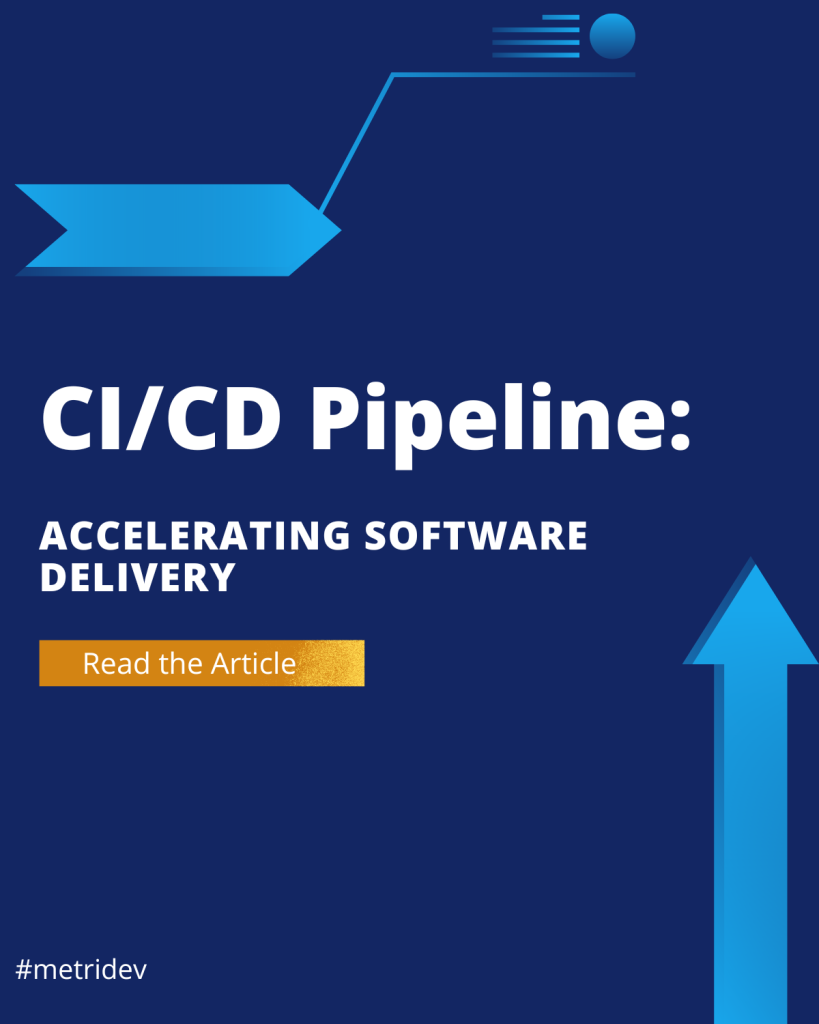Introduction
In the ever-evolving world of software development, the role of the developer has become increasingly complex and multifaceted. As technology continues to advance, the demands placed on developers have grown exponentially, requiring them to not only possess technical expertise but also navigate a myriad of tools, processes, and workflows. This is where the concept of Developer Experience Engineering (DevEx) comes into play, a discipline that aims to enhance the overall experience of software developers throughout their journey.
What is Developer Experience Engineering?
Developer Experience Engineering (DevEx) is a holistic approach that focuses on optimizing the entire software development lifecycle, from the initial onboarding process to the day-to-day tasks and workflows. It encompasses the design, implementation, and continuous improvement of the tools, systems, and environments that developers interact with, with the goal of creating a seamless, efficient, and enjoyable development experience.
Understanding the Developer Journey
To effectively address the needs of developers, it is crucial to understand the various stages of the developer journey. This journey typically includes the following key phases:
- Onboarding: The initial process of introducing a new developer to the organization, its codebase, and the established development practices.
- Day-to-Day Tasks: The routine activities and workflows that developers engage in, such as coding, testing, debugging, and deployment.
- Collaboration and Communication: The interactions and exchanges between developers, team members, and stakeholders throughout the development process.
- Continuous Learning and Growth: The ongoing efforts to expand a developer’s knowledge, skills, and expertise, both within the organization and the broader industry.
What Does a DevEx Engineer Do?
A DevEx engineer is responsible for understanding the developer journey and identifying pain points, inefficiencies, and areas for improvement. They work closely with developers, product managers, and other stakeholders to design and implement solutions that enhance the overall developer experience. This may include:
- Streamlining onboarding processes and providing comprehensive documentation.
- Optimizing development tools, workflows, and infrastructure to improve productivity.
- Fostering collaboration and communication among developers and cross-functional teams.
- Implementing continuous learning and professional development opportunities.
- Gathering feedback and data to continuously refine and improve the developer experience.
The Role of a Developer Experience Engineer
The role of a Developer Experience Engineer is multifaceted and encompasses a wide range of responsibilities. First, they are responsible for identifying the pain points and challenges experienced by developers throughout the software development lifecycle. Next, they design and implement solutions that address these identified issues, such as improving tooling, streamlining workflows, and enhancing collaboration. Additionally, they continuously gather feedback, analyze data, and iterate on the implemented solutions to ensure the developer experience is constantly improving. Moreover, fostering strong relationships with developers, product managers, and other stakeholders is crucial. This helps ensuring that the developer experience aligns with organizational goals and objectives. Finally, they promote the importance of developer experience within the organization and educate stakeholders on the benefits of investing in this discipline.

Benefits of Investing in Developer Experience Engineering
Investing in Developer Experience Engineering can bring numerous benefits to an organization. First, it can lead to increased productivity by optimizing the developer workflow and reducing friction. This allows developers to focus on writing high-quality code and delivering value more efficiently. Additionally, a positive developer experience can improve talent attraction and retention. Developers are more likely to be engaged and satisfied with their work. Furthermore, streamlined development processes and improved collaboration can result in faster time-to-market, enabling quicker product development and deployment cycles. Moreover, fostering a positive developer experience can enhance innovation. Creating a culture of creativity, experimentation, and continuous learning can lead to innovative solutions and products. Lastly, by addressing inefficiencies and reducing developer friction, organizations can reduce costs and save on development resources.
Key Differences Between Developer Experience (DevEx) and DevOps
While DevEx and DevOps share some overlapping goals, such as improving developer productivity and streamlining the software development lifecycle, there are key differences between the two disciplines:
| DevEx | DevOps |
|---|---|
| Focuses on the overall developer experience, including tools, workflows, and collaboration. | Focuses on the automation and integration of the software development and deployment processes. |
| Aims to create a positive, efficient, and enjoyable development environment. | Aims to improve the speed, reliability, and scalability of the software delivery pipeline. |
| Involves collaboration with developers, product managers, and other stakeholders. | Involves collaboration between development, operations, and sometimes security teams. |
| Emphasizes the developer as the primary user and their needs as the driving force. | Emphasizes the overall software delivery process and the optimization of that process. |
Strategies for Improving Developer Experience
To improve the developer experience, organizations can implement a variety of strategies. First, streamlining onboarding processes is crucial. By developing comprehensive onboarding procedures, new developers can quickly gain the necessary tools, resources, and knowledge to get up to speed. Next, optimizing development workflows is essential. Analyzing and refining day-to-day workflows such as code editing, testing, and deployment can significantly reduce friction and enhance productivity. Additionally, enhancing collaboration and communication is vital. Implementing tools and processes that facilitate effective collaboration, knowledge sharing, and communication among developers and cross-functional teams can greatly improve the developer experience.
Furthermore, fostering continuous learning. Providing opportunities such as training programs, mentorship initiatives, and access to industry resources allows developers to continually expand their skills and knowledge. Finally, gathering feedback and iterating is important. Regularly collecting feedback from developers, analyzing data, and continuously refining and improving the developer experience based on the insights gained ensures ongoing enhancements and satisfaction.
Tools and Technologies for Developer Experience Engineering
Developer Experience Engineering leverages a variety of tools and technologies to enhance the developer journey, including:
- Integrated Development Environments (IDEs). Tools like Visual Studio Code, IntelliJ IDEA, and PyCharm that provide a comprehensive and customizable development environment.
- Collaboration and Communication Platforms. Tools like Slack, Microsoft Teams, and Confluence that facilitate effective collaboration and knowledge sharing.
- Automation and CI/CD Tools. Tools like Jenkins, GitLab, and GitHub Actions that streamline the software development and deployment processes.
- Developer Portals and Documentation. Platforms that provide developers with easy access to relevant information, resources, and self-service tools.
- Feedback and Analytics Tools. Solutions that collect and analyze developer feedback, usage data, and performance metrics to drive continuous improvement.
Hiring a Developer Experience Engineer
When hiring a Developer Experience Engineer, organizations should look for candidates with a unique blend of technical, design, and interpersonal skills. First and foremost, a strong understanding of software development processes and workflows is essential. Additionally, expertise in user experience design and human-centered design principles is crucial for creating effective and user-friendly solutions. Furthermore, proficiency in various development tools, frameworks, and technologies. This ensures that the engineer can effectively address a range of technical challenges. Moreover, excellent communication and collaboration skills are vital for working with diverse teams and stakeholders. The ability to gather and analyze data to drive informed decision-making is another important qualification, as it enables continuous improvement based on evidence. Finally, experience in project management and process improvement is valuable for overseeing initiatives and ensuring they are implemented efficiently and effectively.
Software Developer Experience Engineer
A Software Developer Experience Engineer is a specialized role within the broader field of Developer Experience Engineering. This individual is responsible for designing and implementing solutions that enhance the software development experience specifically, focusing on areas such as:
- Optimizing the development toolchain and infrastructure
- Improving the developer workflow and productivity
- Enhancing the code editing and debugging experience
- Streamlining the build, test, and deployment processes
- Integrating and automating various development tasks
Software Developer Experience Engineers often work closely with software developers, DevOps engineers, and other technical stakeholders to ensure that the development environment is efficient, intuitive, and aligned with the needs of the engineering team.
What is a Software Engineer Experience?
Software engineer experience refers to the cumulative knowledge, skills, and practical application of software development practices that an individual has acquired over time. This experience can be gained through various means, such as:
- Education: Formal training in computer science, software engineering, or a related field, including coursework, projects, and internships.
- Professional Experience: Hands-on experience working as a software engineer, including roles such as junior developer, senior developer, and lead engineer.
- Personal Projects: Developing and maintaining personal software projects, contributing to open-source initiatives, or participating in coding challenges and hackathons.
- Continuous Learning: Staying up-to-date with the latest technologies, programming languages, frameworks, and best practices through self-study, online courses, and industry events.
The depth and breadth of a software engineer’s experience can vary greatly, depending on factors such as the complexity of the projects they have worked on, the technologies they have mastered, and the challenges they have overcome. Experienced software engineers are often valued for their ability to quickly adapt to new environments, solve complex problems, and mentor junior team members.
Does Software Test Engineer Count as Software Development Experience?
Yes, experience as a software test engineer can be considered as part of software development experience. While testing is a distinct discipline within the software development lifecycle, it is closely intertwined with the overall development process and requires a deep understanding of software engineering principles.
Software test engineers are responsible for designing and executing test cases, identifying and reporting bugs, and collaborating with developers to ensure the quality and reliability of the software. This hands-on experience with the development lifecycle, as well as the technical skills required to write and automate tests, can be highly valuable for a software developer’s career progression.
Moreover, many software development roles, especially in agile and DevOps-driven environments, often require a combination of development and testing skills. The ability to write robust and maintainable test suites, debug issues, and collaborate effectively with the development team is a valuable asset for any software engineer.
Conclusion
As the software development landscape continues to evolve, the importance of Developer Experience Engineering will only continue to grow. Consequently, by prioritizing the needs and experiences of developers, organizations can unlock significant benefits. For instance, this focus can lead to increased productivity, fostering innovation, and enhancing talent retention.
To learn more about how you can improve the developer experience within your organization, read our article DevOps Maturity Model for Seamless Business Transformation.









Leave a Reply